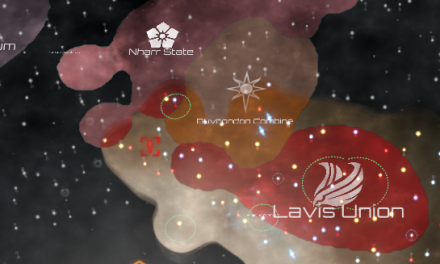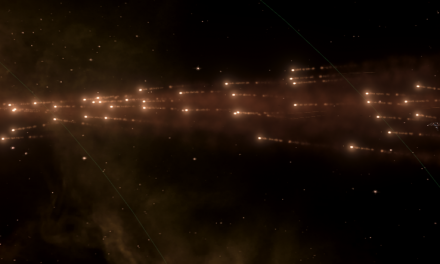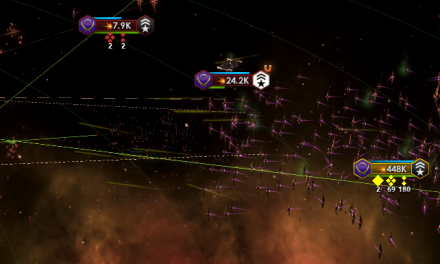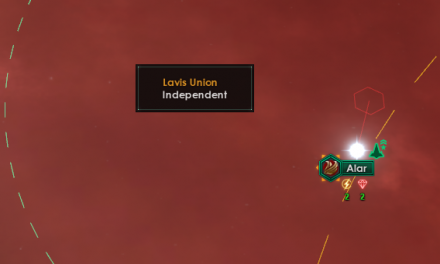The early decades of our forays into space travel were enlightening, often dangerous, and filled with previously-unimagined discoveries at every turn. In addition to the religious isolationist Oklarr Council, the militaristic and arrogant Buvhondon Combine was discovered, its borders nestling directly up against ours. Conflict was sure to brew between our species, but at the time an uneasy truce was maintained, perhaps encouraged by our lack of information on one another.
We received a communication from the small “Artisan Troupe” empire, which had successfully translated our language after decades of hearing our transmissions. Seemingly peaceful, their culture revolved around art and music, some of which was determined to be beautiful by our scholars. The offered to share their discoveries and seemed to have no ulterior motive other than the spread of culture. The scientific council received them with appreciation, but had no immediate plans to engage with their foreign ways.
Archaeologists had long been studying the remains of the once-prevalent Yuht civilization, encountering vast examples of their space-faring technologies and cultural outlook. After translating records discovered in a long-abandoned Yuht listening array, the scientific council reported that these long-lived creatures had found no trace of sentient life in this sector.
Continued investigation into our cosmic fore-bearers brought many debates among academic circles, particularly about the seemingly simultaneous rise of three intelligent empires, only growing to prominence after the Yuht had vanished. Was there a particular “golden age” of advancement and development for galactic civilizations, and if so, had we developed at just the right time to reap its benefits?
There was no doubt, though little proof had been as of then found, that the Yuht were only one of many long-extinct civilizations we would uncover in our expanding knowledge of the cosmos. Each would provide opportunities to learn, to understand, and to shape our own empire such that we would not share their fate.
In those days our scientific advances grew and grew, but never far from our minds was the inherent danger in our expansion – several science teams were lost when assaulted by unknown pirates, and more than once we had to position our navy to dissuade attacks against our stations. Our most important military victory came at the battle of Bir, where a powerful alien force had gathered strength, presumably to launch assaults against our fledgling structures in Suyo.
The wizened admiral Stalk of Olive bravely lead our armada into battle against the would-be aggressors, and though losses were severe, the council was pleased to announce that all signs of hostile ships had been cleared from the field. The heroes lost in those great battles remain inspirations for military cadets even today.













